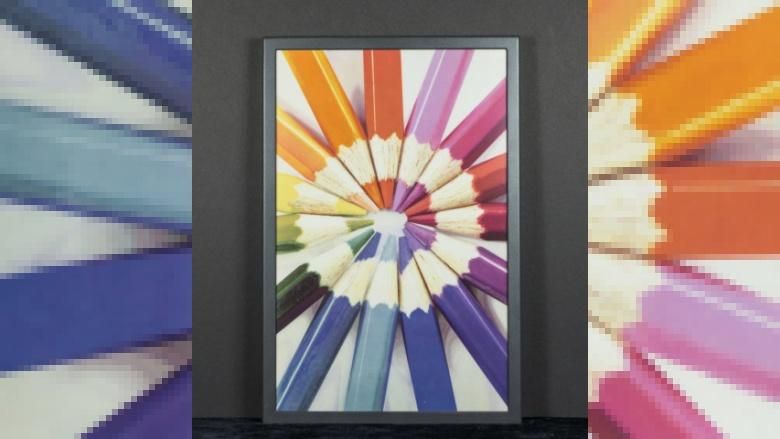Pebble does not use ePaper displays. It achieves a certain likeness to ePaper displays through memory-in-pixel LCDs on its smartwatches, both old and new, but it’s not an ePaper display like the one the YotaPhone uses. But unless it can improve on that technology further, perhaps manufacturers should consider something new from the maker of ePaper, E Ink.
That’s because the company has introduced Advanced Color ePaper tech, achieving “a full color gamut, including all eight primary colors, using only colored pigments”.
We have a primer on how ePaper technology works, but the big deal here is that all of the ink pigments are available in each and every unit or “pixel” of the display as opposed to in a color subpixel arrangement. A fitting comparison here would be LEDs to your more traditional LCDs … well, except that in each pixel, different pigments — made from different materials — respond to different frequencies and voltages sent from the display’s electrodes. It’s been six years since E Ink released the 4,096-color Triton ePaper display, so this is a big step up for the technology.
It’s literally big, too. The company is initially targeting ACeP to digital signage — what you see above is a 20-inch display at 1,600 x 2,500 resolution.
We’ve asked the company on any timeline for miniaturization of the ACeP, we’ll update this post if and when we hear back.
Update: E Ink’s marketing chief, Giovanni Mancini, has addressed a couple of our questions.
On the number of colors that the technology can produce:
The specific number of colors is a function of the chemistry and the electronics used to control the pigments. ACeP will produce tens of thousands of colors, but more specific details will be available as we get to production.
On miniaturization:
The size of the display can be scaled up or down depending on the size of the TFT backplane. ACeP is expected to be in full production within 2 years. At that time we should be able to produce smaller size displays. It is [a] matter of market demand and customer requirements.
Source: BusinessWire
Via: The Verge

